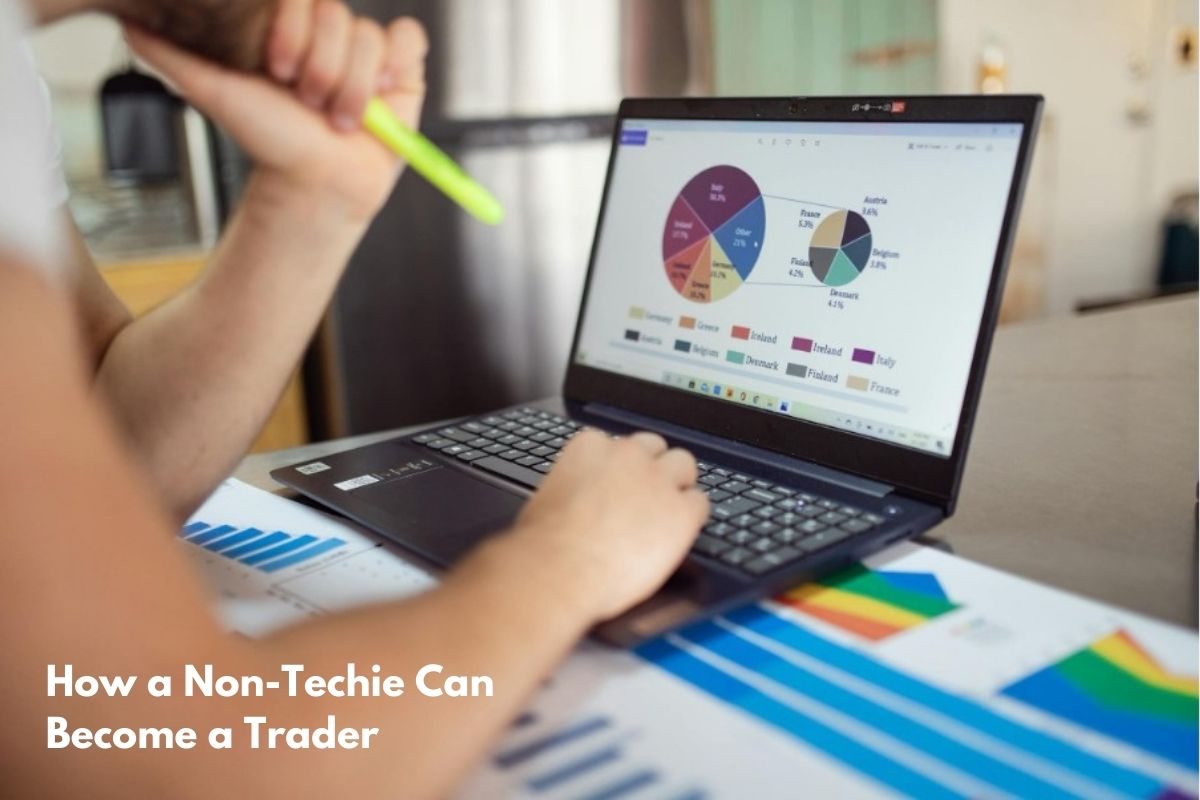
- Published by: Tutor City
- February 01, 2025
- Career
How a Non-Techie Can Become a Trader
Millions of people have made it big by becoming online asset traders. Most people have different goals when they enter the space. Some ambitious people want to attain financial freedom and build a better life.
Others want a reliable extra income source to help combat the cost-of-living crisis, and there are those who just want to feel more in control of their financial realities. Whatever a potential trader’s reasons are, if they’re not tech-savvy then the ideal way to go is to set realistic goals when working with them; you want to move at their pace while motivating them to do better. Here are some pointers that can help.
Helping People Who Have Limited Technical Know-How
Many millennials and Gen Zs grew up with personal computers, smartphones, and the internet. So, it’s understandable that basic technical abilities come easily to them. Meanwhile, a considerable percentage of the people who grew up when these technologies were not easily and readily available had to become “Web” natives as adults. You can’t blame many people for their apathy to “modern technology.” Instead, help bridge the skill and knowledge gap so that everyone can be able to do more with less.
The first thing to do is expose non-technical people in your life to new technologies and ideas. Platforms like OANDA may not be well known, and the idea of trading stocks from home might seem preposterous to them — but apps like TradingView Singapore are leading the line in making retail trading accessible to everyone.
Once you’ve shown someone that it’s possible to trade online, teach them how the apps work, what to look out for, and how to avoid scams.
Show Them the Resources They Can Access
Spend enough time as an active member of your community, and you’ll come across people who do not have the technical skills or financial understanding to effectively trade assets online (or offline). There are a few things you can do to help people who are less knowledgeable about the financial market.
Teach them how to use apps with multi-language functionalities. Find an app that goes beyond simply auto-translating texts and audio; you want a product that can meet these people where they are and bridge their education gaps. Some of these gaps include technical know-how in investment analysis and charting, risk management in trading, and navigating volatility in industries like crypto—including understanding conversions such as PEPE to USD. Due to their technicality, topics like these are not often as easy for first-timers. Start slow and streamline efforts to one or two asset classes that are easy to understand with minimal risks. Specialization goes a long way because it’s an easy route to build, especially for beginners.
A crucial thing to also teach them to look out for is greed — it’s something most novices fall prey to, especially when things begin to go well. Greed increases their risks of overtrading, significantly exposing beginners to more losses. Knowing when to cap their gains and exit the market is important because anyone could lose it all in the blink of an eye. Let them know some of the best ways traders avoid this, like sticking to their predefined exit points and risk limits.
Here are some tools and resources to consider when helping non-technical people:
1. Community Support
Having people to rely on isn’t necessarily the first resource that would jump to mind, but it’s a vital one. People with limited experience and knowledge are prime targets for nefarious actors, so there should be a clear line of communication where friends or family can easily reach out when something seems off or they get suspicious emails.
2. Mirror-Trading
The ability to track trades your non-technical friends make in real time can be the difference between a sour experience and a great return. Alternatively, they can mirror your trades and copy what you do if you’re confident in your ability to make the right choice and help them win.
3. Stop Losses and Take Profits
The power of a stop loss or take profit button cannot be overstated as a trader, and it will save your friends and family members on multiple occasions. Teach them how to use these tools judiciously; you won’t regret taking the time to do so.
Improving Accessibility in Retail Trading
Companies know the untapped market potential available among people with limited technical and educational capabilities. Being non-technical shouldn’t be a reason to be left out — any trading service that can ethically harness this opportunity has the potential to take over the space and secure incredible market share.
Singapore is home to lots of massive companies with billions of USD and SGD.
Some of these businesses build high-tech machinery and work in the financial space, while others operate in other industries like real estate and aviation. Singapore’s economy has something for everybody, and that’s why everyone, regardless of their technical knowledge, has a shot at becoming an asset trader.
The major things stopping most people from entering the trading space are the fear of the unknown and inadequate knowledge, and it doesn’t have to be that way. One way to give beginners smoother experiences and help increase their access to trading is by minimizing jargon and acronyms when taking them through the processes already listed in this piece.
Trading Is for Everyone
Helping non-technical people can take time and effort, but the end result will be more than worth it when you’ve equipped them with the tools to explore new opportunities. The financial market has opportunities for everyone, and the opportunity to maximize these chances lies heavily in how much they know and are willing to learn.






